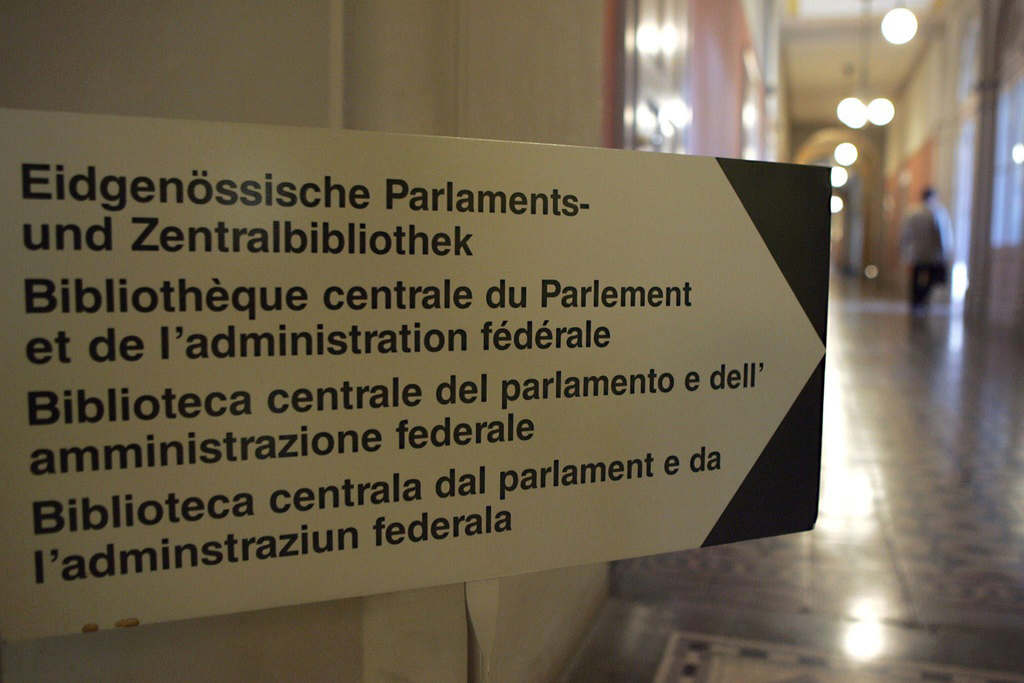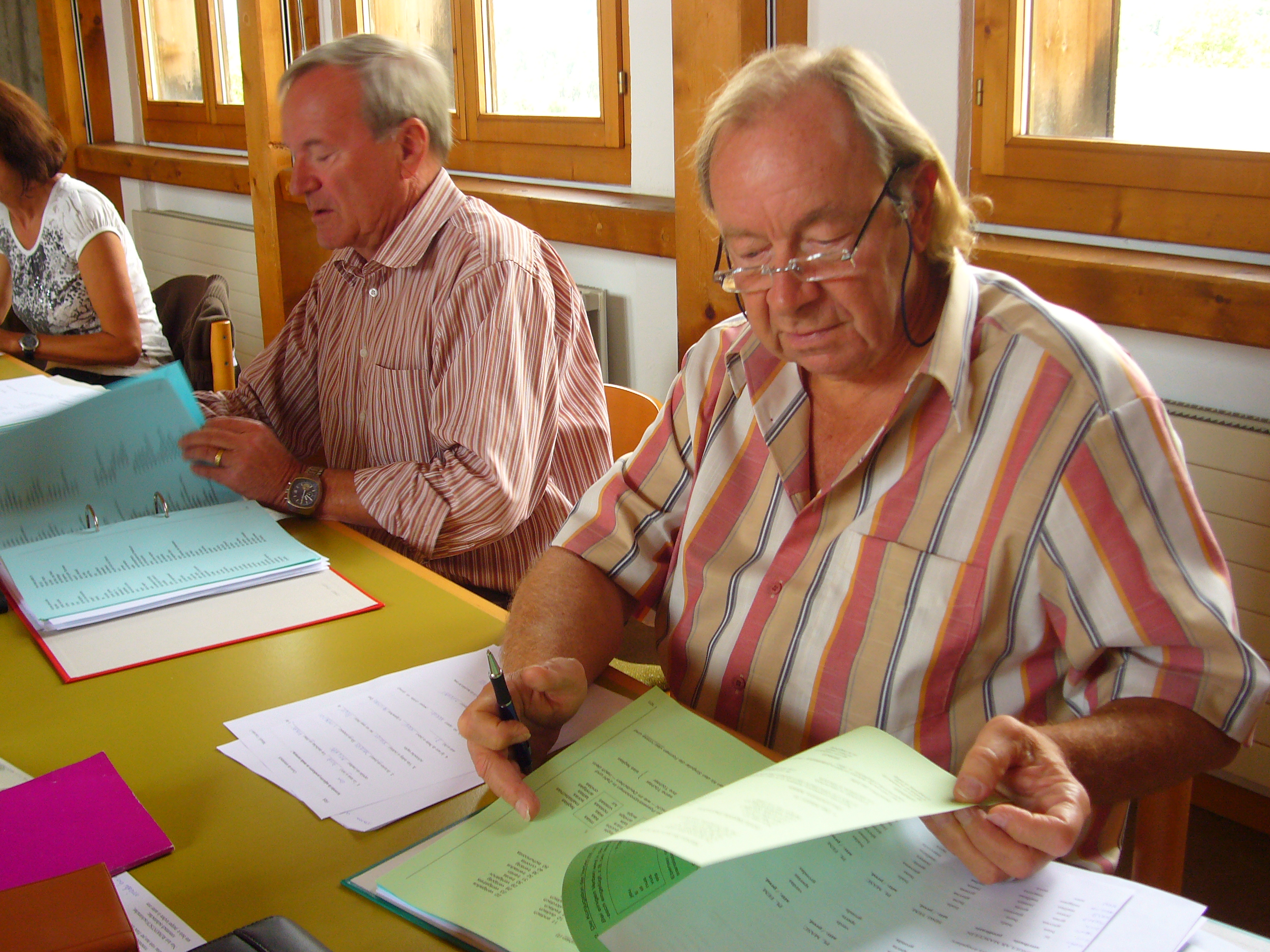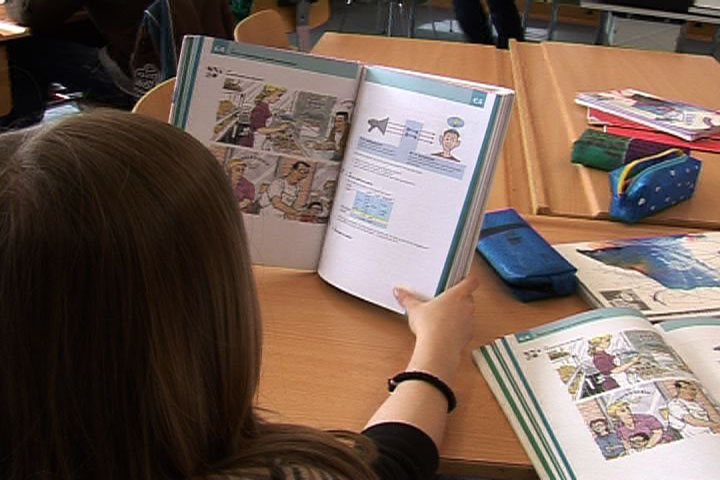“Mr Multilingual” oversees language balance

Re-establishing a more even distribution of federal posts between the four main language regions will be a tough task, admits the new federal multilingual delegate.
The government recently appointed Vasco Dumartheray to support minority languages within the federal administration. He tells swissinfo.ch about the main challenges.
Under a new legal ordinance, which came into effect on July 1, a quota for federal staff was also introduced. It states that 70 per cent of staff should be German speakers, 22 per cent French speakers, seven per cent Italian speakers and one per cent Romansh speakers, in line with the Swiss population.
According to the Federal Personnel Office, the new language quotas generally match reality if you consider all personnel categories together. But in certain departments German speakers are over-represented, and for some top management posts French and Italian speakers are totally absent.
Hebdo magazine claims the finance and defence ministries have no staff from either region in their ten most important posts.
swissinfo.ch: How do you explain the over-representation of German speakers and lack of minority languages within the federal administration? Is it a case of language discrimination?
Vasco Dumartheray: No it isn’t. But it’s an important problem. A recent study by the National Science Foundation (NFP 56) highlighted the vicious circle in the recruitment process, drawing a lot of attention to this issue and sparking internal debate.
In general, a German-speaking boss would rather recruit a German speaker, a French-speaking boss would recruit a French speaker and so on. But it will not be easy to break this cycle, as it’s done unintentionally. There is never a deliberate will to discriminate linguistically.
I think the situation can be prevented through communication, by making people more sensitive to the problem. We have to talk directly with the people involved in recruitment to see how they view the problem and how we can change things and offer ideas. It’s an issue that has been around for many years.
swissinfo.ch: A common excuse often heard for Italian is that there are not always enough good candidates for the top positions. What’s your view?
V.D.: For certain posts the departments or offices in question may not have received as many good Italian-speaking candidates as German-speaking ones.
But it’s a question of critical mass. Out of ten applicants, seven or eight may be German-speakers, two may be French-speakers and only one an Italian speaker.
Internally, we have to improve the recruitment process so that an Italian speaker can apply and then [demonstrate their abilities] in their own language, which is not always the case at the moment.
We have done headhunting for a few years in universities, but we need to improve in a more targeted fashion. And we have to better explain the qualities and strong points of the federal administration as there are sometimes negative attitudes – that it is a big, heavy bureaucratic organisation. But it has changed quite a lot recently.
swissinfo.ch: Italian is rarely heard in the federal corridors. What’s your view on this?
V.D.: You only have to go to parliament to see that Swiss-Italian politicians express themselves in either German or French. In the federal administration lots of Italian speakers also communicate in French or German, as they are worried about not being understood by their colleagues.
My mandate is to ensure there is more Italian. This can be done by having enough Italian speakers in the administration and encouraging them to express themselves in Italian during working sessions and in emails. People are very reticent on this point, but they can do it more now – it’s part of the new law – but it will be progressive.
At the same time, German and French-speaking colleagues’ knowledge of Italian has to be improved. But I’m certain that more and more colleagues will now start learning Italian for professional purposes.
swissinfo.ch: And what about English? Is it taboo or a sign of laziness to use it at work?
V.D.: No. For some people it’s already too present, but for external communication it’s important that part of what’s done is in English, especially with the internet.
Lots of people go to English courses, but this should not be done to the detriment of the official languages, and sometimes this is the case.
It’s important that the national languages remain the working languages of the federal administration, and that it also communicates in English. You can’t oppose the use of English.
Simon Bradley, swissinfo.ch
Vasco Dumartheray, 52, grew up in Geneva, where he studied political science at Geneva University.
During his professional career he has worked for the Geneva-based International Committee of the Red Cross (ICRC) in El Salvador and Lebanon, the Swiss Red Cross and the International Migration Office.
For the past ten years he has worked for the federal administration in Bern at the Federal Chancellery and at the Federal Personnel Office advising on multilingual, training and staffing issues.
Dumartheray has Swiss, French and Brazilian roots and his wife comes from Italian-speaking Ticino.
Figures from a federal census conducted in 2000:
National languages:
German 63.7%
French 20.4%
Italian 6.5%
Romansh 0.5%
Non-national languages:
Serbo-Croatian 1.4%
Albanian 1.3%
Portuguese 1.2%
Spanish 1.1%
English 1.0%
Turkish 0.6%
Tamil 0.3%
Arabic 0.2%

In compliance with the JTI standards
More: SWI swissinfo.ch certified by the Journalism Trust Initiative







You can find an overview of ongoing debates with our journalists here. Please join us!
If you want to start a conversation about a topic raised in this article or want to report factual errors, email us at english@swissinfo.ch.